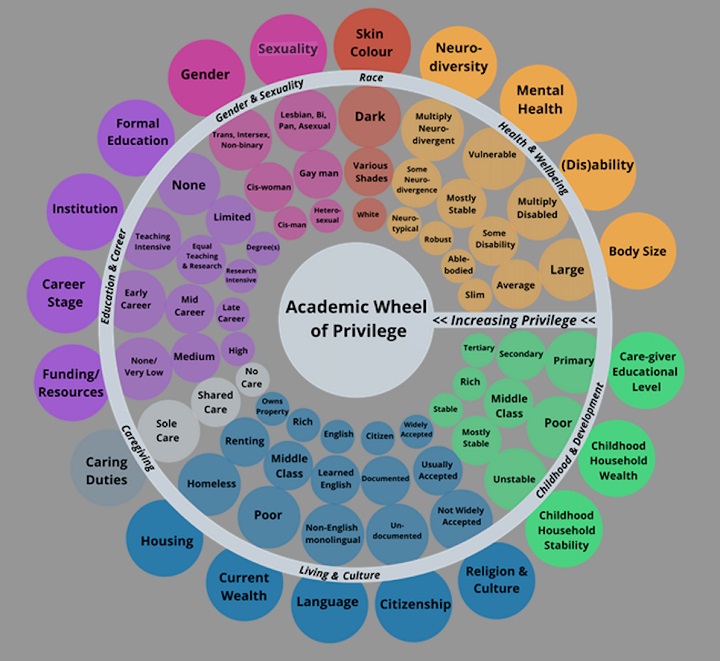Privilege in academia
Inequities in academia and research are a big issue, showing up in various ways like gender, race, disability, and elitism. In Weeks 5 and 6, you discovered some examples of how researchers don’t all have equal access to opportunities. This relates to privilege, often described as unearned access or advantage, which specific groups of people have because of their membership of a particular social group.
Women and minorities often hit roadblocks when it comes to climbing the career ladder or getting access to key resources, which means they’re not as well represented in top positions or in prestigious research projects. People with disabilities face both physical challenges and unhelpful attitudes that can make it tough to fully take part. On top of that, elitism tends to favour those from more privileged backgrounds and institutions, keeping opportunities out of reach for many.
Everyone working and studying in academia has a duty to support researchers who face greater barriers, and to influence their institutions and organisations to make positive change to encourage diversity, equity, and inclusion.
Activity 1:
Allow about 10 minutes
This activity allows you to reflect on your understanding of ‘accessibility’ and ‘privilege’ in academia. The diagram is adapted from Elsherif et al (2022), whose full article is in the references section.
Look at the academic wheel of privilege above – which parts describe you? Spend ten minutes thinking about whether or not you feel that your experience of academia has been positively or negatively affected by your characteristics.
Use the textbox below to write your thoughts.
Introduction

